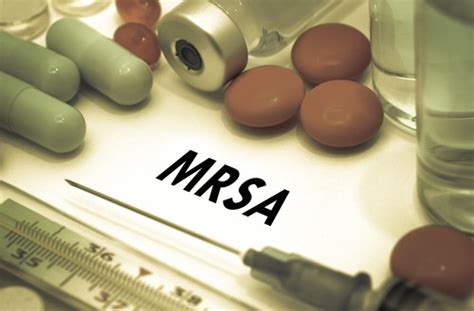
Methicillin-Resistant Staphylococci refer to a particular group of Gram-negative bacteria which are genetically different from all other strains of staphylococci. MRSA is considered to be the most serious form of infection in humans due to its ability to develop resistance to many different antibiotics. MRSA can spread from patient to patient through contact with an infected person or a contaminated object. MRSA can cause various infections, such as meningitis and sepsis, in those who are already infected.
MRSA can grow very quickly and is difficult to control
Some forms of MRSA can release toxins that can irritate the nasal passages, eyes, and nose of an infected person. When MRSA becomes advanced, it becomes difficult to treat the infection because it is resistant to antibiotics.
MRSA can cause meningitis, sepsis, peritonsillar abscesses, and pulmonary embolism (impaired blood flow to the lungs). These infections can be fatal if not identified and treated in time. The most common symptoms of methicillin-resistant staphylococcal infection include fever, headache, cough with yellow mucus, chills, skin rash, nausea, and abdominal pain.
If you think you are suffering from MRSA, seek medical attention. Don't delay taking action until you are sure you have MRSA. Seek professional help if you experience any of the following symptoms: eye redness, difficulty breathing, worsening headache, or difficulty swallowing.
Skin lesions caused by MRSA can appear as acne or appear as a blue-green skin rash, often on the elbows, wrists, or face. The rash is usually warm to the touch and may become red and swollen. Sometimes the rash spreads to other parts of the body and may bleed.
The symptoms of this type of skin infection are generally similar to those of other skin infections. Therefore, they can mimic some of the symptoms of flu, such as fever, chills, headaches, and pain during or after exercise. However, if MRSA symptoms are left untreated, they may spread and cause serious complications. You should seek professional medical help if you do not get better in a timely manner.
You should contact your health care providers as soon as possible for diagnosis and treatment.
Your health care provider will determine the best course of action
To avoid spreading the bacteria, stay home when you are sick, clean up after yourself and keep yourself dry and away from others. Keep pets out of your home. If you are already ill or have another health problem, see your health care provider immediately.
If you have been prescribed prescription medicines to prevent the spread of Mersa, you can take them in a combination to kill all of the bacteria. Your health care provider may prescribe an antibiotic to treat a particular outbreak of Mersa.
If you do not receive medical attention in time, you may become very ill or die. You should always tell your health care provider if you have any unusual symptoms, especially those that are not related to a cold or flu.
Antibiotics are often given to cure a specific case of Mersa. This type of antibiotic is taken orally. Usually, a course of two to four weeks will be prescribed. Once the course is over, a series of tablets can be taken every week until the symptoms have gone away.
Natural treatment options are available but are usually less effective and can lead to side effects. Some people may choose to use natural treatments while others may decide to use alternative treatments that include herbal supplements.
There is no single recommended way to treat Mersa. Your health care provider will decide which option is right for you based on your medical history, symptoms, and any risk factors that may be involved in your case. For example, some people may have to take a course of antibiotics for a long time before a cure is found. There may also be cases where the drugs prescribed cannot completely eradicate the bacteria.